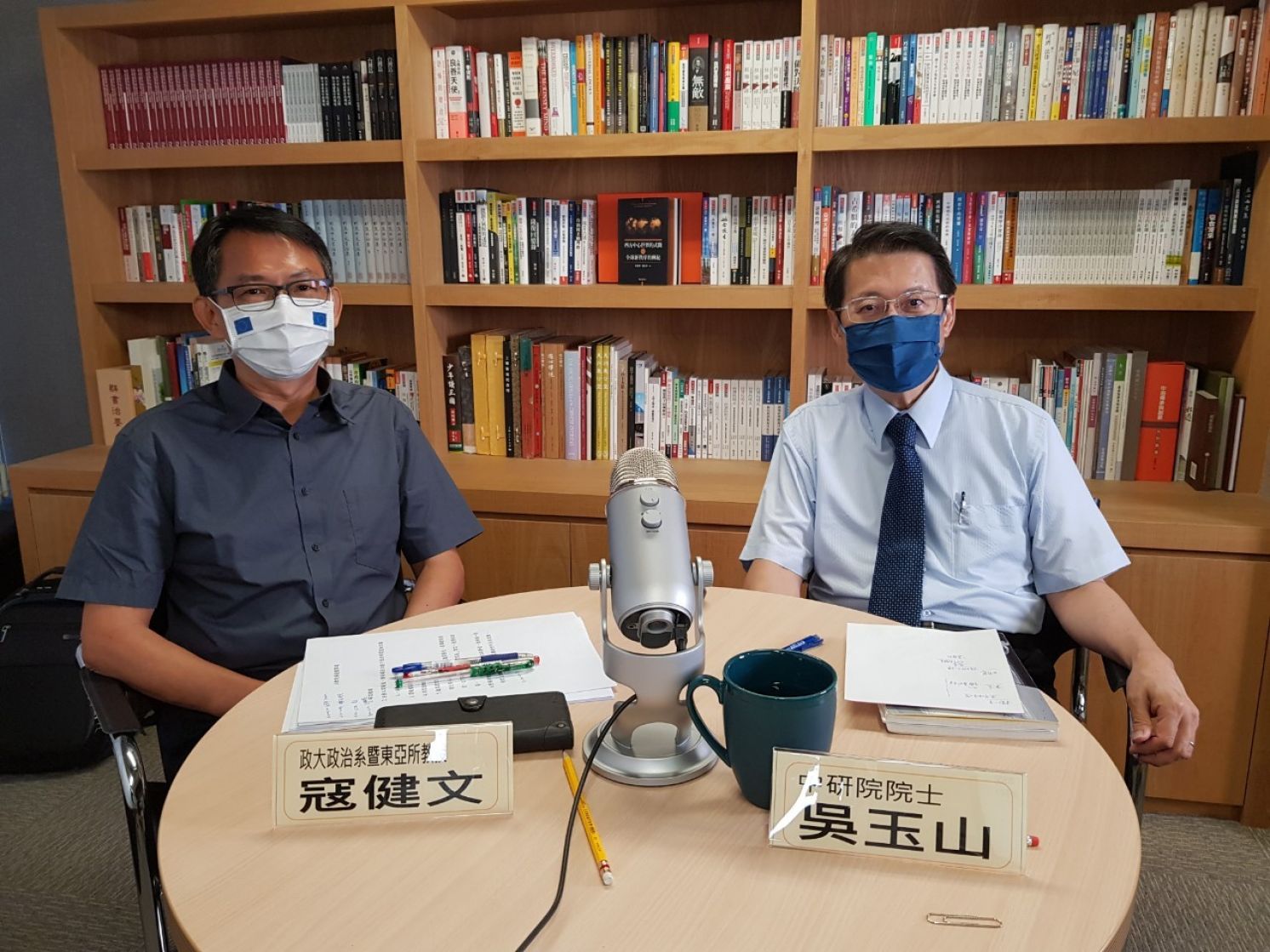
Xi Pushes "ReMaoization" by Concentrating Power in His Hands
United Daily News, September 4, 2021
As part of a lecture series discussing the centenary of the Chinese Communist Party, Academician Wu Yu-shan of the Academia Sinica indicated that since Xi Jinping became leader, the power is highly centralized and the term limit of chairmanship has been lifted. In addition, the institutionalization established by former leader Deng Xiaoping was weakened, and societal control has deepened. This is very different from the direction of development under Deng’s rule. Wu called this trend of restoring Maoism "ReMaoization."
The third part of the lecture series on the centenary of the Chinese Communist Party, co-organized by the Fair Winds Foundation, Reflexion magazine, Linking Publishing, and the Storm Media, was held online today. Wu lectured on the continuity and development of China's party state system.
According to Wu, power became highly concentrated in the Xi era, that is, Xi's new era of socialism with Chinese characteristics, reduced institutionalization, removal of the presidential term limit, and no power sharing, as well as the recent phenomenon of corporate and cultural rectification, such as rectifying the fans of artists, feminine males, and financial enterprises.
Wu stated that this is something that has not happened in the past few decades. The overall direction is very different from Deng Xiaoping's lifting restrictions to promote development. It has taken mainland China from a post-totalitarian developing country to a totalitarian direction.
Wu said that Xi reflects the thoughts, personality, and values during the Mao Zedong era. He believes that there are two root causes for the mainland's systematic changes from the post-totalitarian era. They include the socialization process of Xi's political generation and a self-defensive response to Hu Jintao's opening, which have tested the boundaries of the party state system.
In the lecture, Wu reiterated that Xi's political ideas and ruling style are not his own. He is an embodiment of his generation. Xi's former opponent Bo Xilai can also sing red songs and exhort Mao's socialist ideals, reflecting that the common experience of growth has etched in the memories of their generation.
In addition, Xi's successors will have no personal experience with the Cultural Revolution. Their memories of Chairman Mao will be from books only. If Xi continues to rule after the 20th National Congress of the Communist Party and serve for 15 years, then Xi's successors will be a new generation. As such, Wu argued that Xi's "ReMaoization" policy will be hard to continue under future leaders, for Xi has compromised too many a group's interests. Neither will these leaders have Mao's revolutionary sentiments.
According to Wu, Xi is a generation. The generation will pass, and policy will return.
However, Wu explained, at a time when the United States is targeting at China's rise, if U.S.-China relations continues to deteriorate, and the competition of ideology between two sides escalates, then it will intensify nationalism in China's fight against the West. This will lead China to continue Xi's line.
Director Kuo Chien-wen of the Institute of International Relations, the lecture’s moderator, opined that strong leader will always face this dilemma of succession: If his designated successor is not trying to consolidate his own team, then he will not be able to succeed him; if he does try, then he is threatening him, the current leader.
Kuo indicated that if Xi steps down due to his health condition, then his successor will be a weak leader, living in Xi's shadows.
From:
https://udn.com/news/story/7331/5722454